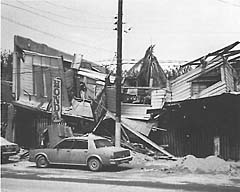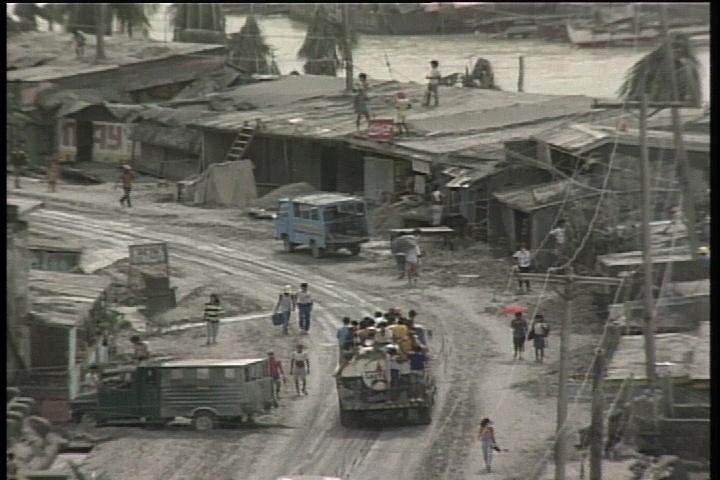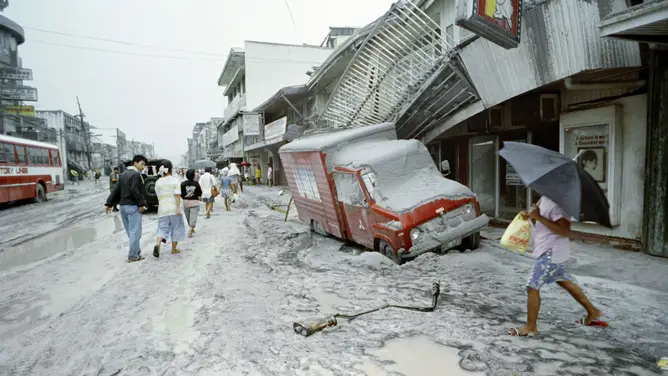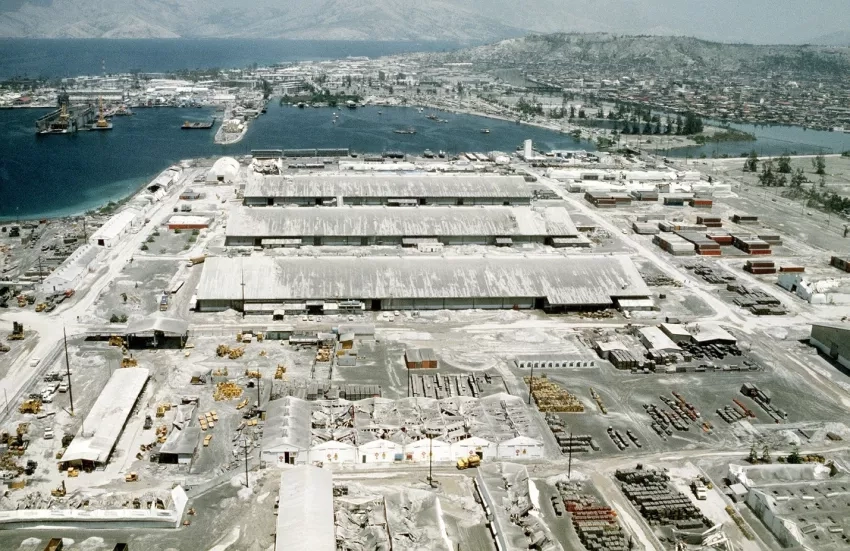
Somebody once wrote that there is a book in each of us waiting to be written, and veteran Marine Staff Sergeant Mark Clifford, from Lafayette, has done just that and more, with his historical novel “Typhoon Coast.” He also has a forthcoming book, “Earthquake Coast.”
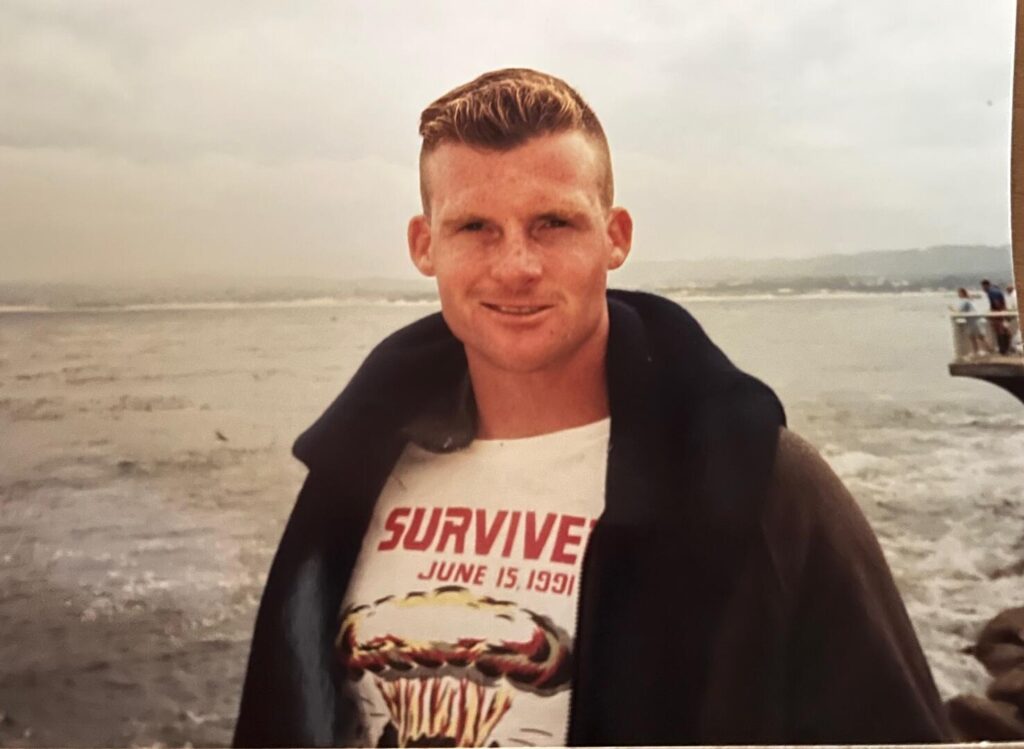
But Mark is no ordinary author. He faced death, not by being targeted by enemy snipers, but by almost being buried alive by the scalding ash from the volcanic eruption of Mount Pinatubo, a seemingly dormant volcano on the island of Luzon. in the Philippines. It happened simultaneously as a typhoon hit the area.
The fateful day was June 12, 1991. Mark was stationed at Subic Bay Naval Air Station. There the volcano had already been spewing ash into the air for three days which resulted in Clark Air Force Base at the foot of the volcano being evacuated. They moved to Subic, together with approximately 20,000 civilians.
Sadly, Pinatubo will displace 1.2 million people, but Operation Fiery Vigil will be credited for saving thousands of lives, 250,000 from imminent death, in one of America’s largest non-combatant evacuation operations, engaging an armada of 22 Navy ships. What was not known at the time, was that Pinatubo would be the second largest volcanic eruption of the century, killing almost 1,000 outright. Thousands more will later be swept to their deaths in rivers of ash, mud, and rock (lahars). Pinatubo became the largest eruption ever, in a densely populated area.
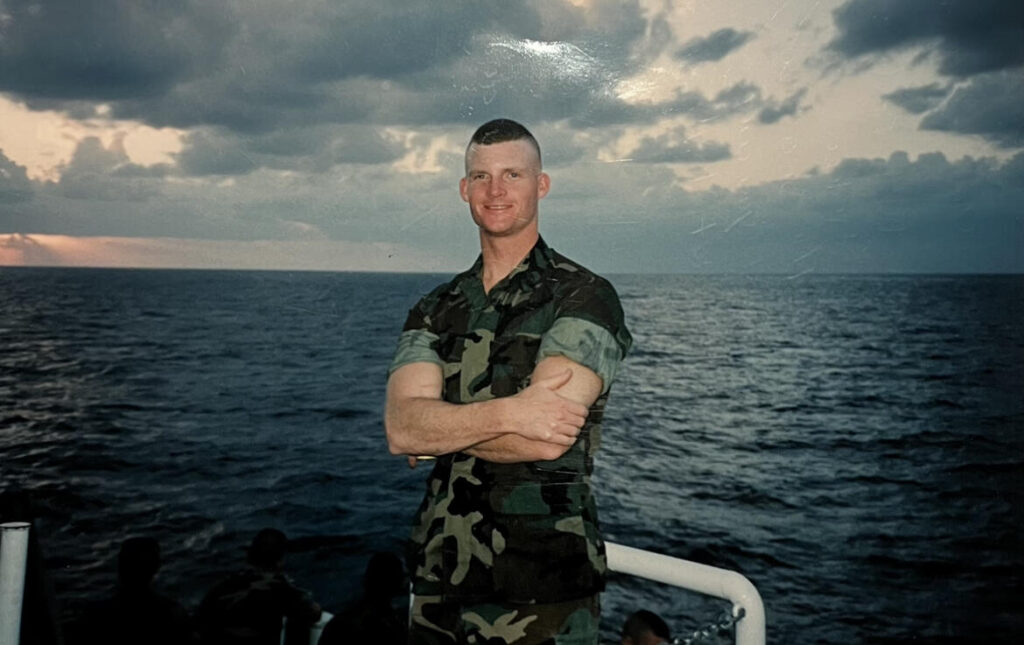


Due to the immense milk white ash cloud lofting in the heavens, Mark’s unit was ordered to return to quarters in the Upper Marine Expeditionary Force part of the Subic camp.

As Mark tells it himself, here is his story.
“We stocked our Quonset hut, a small, prefabricated structure, with water and meals ready to eat. I was responsible for 19 Marines. On June 15, the major eruption took place. Pinatubo had been sleeping for 600 years. The violent eruption vaporized 500 feet of its summit, sending debris 28 miles into the atmosphere. A massive cloud of ash and debris engulfed the surrounding landscape, turning day into night. The earth shook constantly. Meanwhile, a typhoon hit Luzon, its torrential rain turning the ash into cement. All bridges within an 18-mile radius were washed away.
“My Marines found themselves in a fight for their lives. The weight of ash defoliating the jungle was like constant machine gun fire. Amidst the chaos and confusion, our refuge was quickly being turned into a tomb as tons of ash and debris poured down upon us. We were being slowly buried alive, trapped beneath the weight. The heat was suffocating. We fought against despair, struggling to survive in the dark.
“Pinatubo robbed some Marines of their legendary fighting spirit. Battle hardened warriors who had faced the Iraqi Army were reduced to panic and tears. Huddled inside our tiny Quonset hut, the noise was deafening. The time of darkness was terrifying. The lack of air was suffocating. I was becoming acutely aware of the weight of the ash above us.
“As I waited for what seemed like days, I reflected on my life. I thought about all the things I planned to accomplish: family, life beyond the Corps, and all the things I had yet to do. I thought about the people back home, my fiancé — I wondered if they would remember me. Will my remains be excavated like a soldier in Pompeii? At that moment, the thought struck me that this might be the end. I had always imagined that my life would end in a more peaceful or meaningful way. But here I was, trapped, with no possibility of escape. I made my peace with God. I was going to die.”
Mark says after what seemed like an eternity, there was silence. Then the marines began to dig themselves out. The scalding ash burned and skinned their hands and arms as they clawed and burrowed their way through, first creating a small hole, then pulling each other out.
Surprisingly, Mark’s Pinatubo story did not end there. Still today he suffers from the loss of two Marines to major injury, and death. Due to their advanced climbing skills, they were tasked to climb to the top of an eighty-foot-high aircraft hangar to free the doors now twisted and jammed shut by the heavy, wet ash and assess the situation.
The trapped helicopters were urgently needed to deter the NPA (New Peoples’ Army, formed in 1969 to overthrow the government) guerillas they had been fighting and who were now exploiting the chaos. The Corps was desperate to mount a base defense. The eruption had devastated their land, sea, and air readiness.
Mark told the Commander that the task was too dangerous, that after a review with their own engineer, it was anticipated that if they attempted to open the doors, the structure would collapse. But the order was to proceed.
“I heard their screams. I saw their twisted bodies as two of my men fell to their deaths,” he told me. “I felt the tragedy was my fault. But Mission comes before troop welfare in the Marines. I accomplished the mission. The trapped helicopters took to the air. We probably saved many lives.”
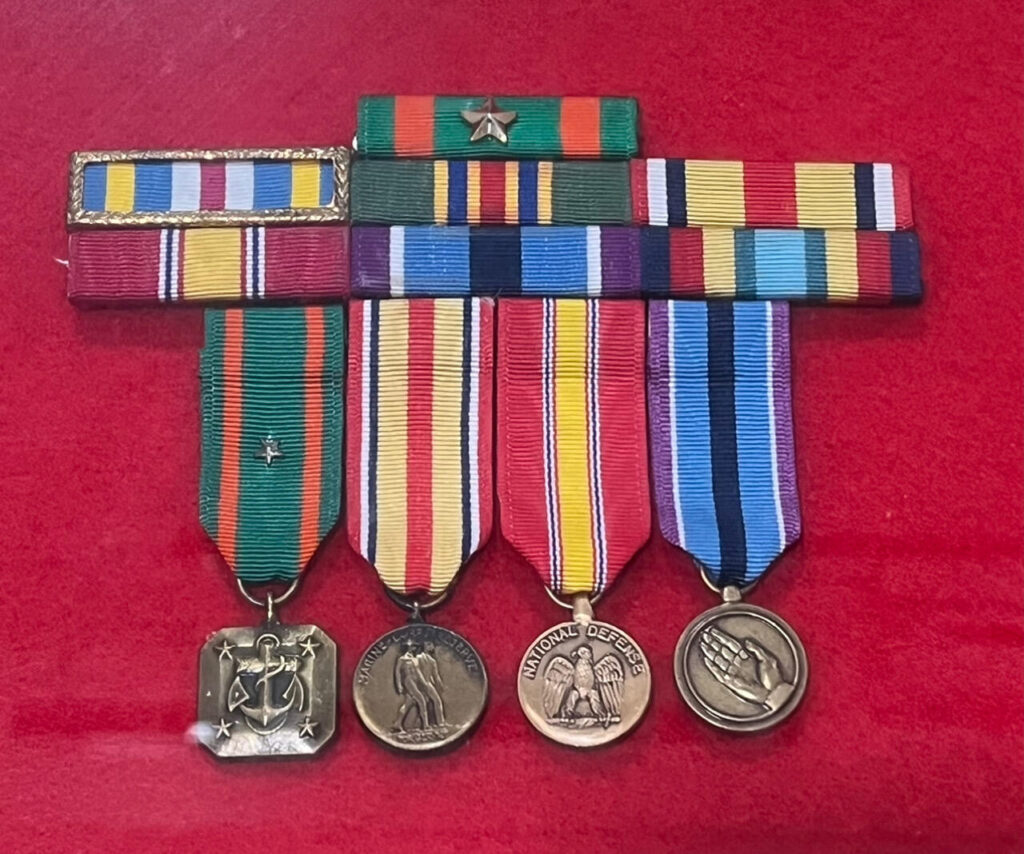
But Mark is not done yet. Memories of his Mt Pinatubo trauma have haunted him for the past 33 years. In February 2025, he plans to return to the Philippines and expunge some of them. Together with a colleague, he plans to climb to the top of the volcano. There are many veterans living in our communities, and Mark is just one and he is your Lafayette neighbor.
